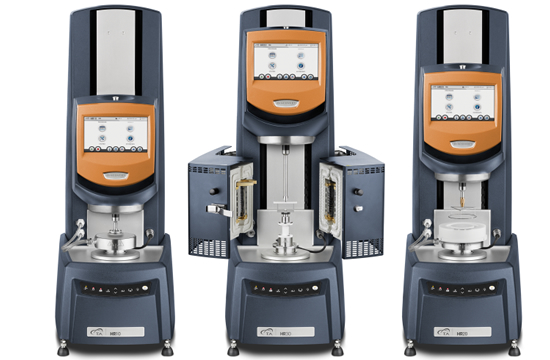Rheology of Topical Pharmaceuticals for New Product Development or Generic Equivalents
Morgan Ulrich | Sarah Cotts
May 02, 2022

FDA Regulations on Topical Pharmaceuticals
The FDA regulations for generic topical lotions classified as drugs affect several aspects of topical pharmaceutical development. At the heart of any topical treatment is the active pharmaceutical ingredient (API), the biologically active species that gives the drug its effects.
In topical medicines, the active ingredient can be present in many forms. The FDA insists that properties such as solubility and particle size are considered as part of the manufacturing process.1 This is because poorly soluble compounds can be unevenly dispersed through the final product, resulting in higher local concentrations of the active ingredient in some areas.
In addition to regulating the API, solubility and particle size, the FDA requires measurements of rheological behavior of a topical medicine to prove generic equivalency.2 Rheological data is used to verify the generic product quality and ensure patient acceptability. Rheology can also be used to satisfy a number of FDA testing requirements.
Rheology Requirements
Rheology is one of the methods to provide information on both the bulk and microstructure of topical treatments. Rheological data aids medical lotion development and helps manufacturers satisfy FDA requirements. With the right instrumentation, rheology measurements can be straightforward and easy to perform while providing information on both the drug’s application properties as well as its efficacy.
The types of properties measured in rheology include the ‘flow curve’ (viscosity versus shear rate), yield stress and viscoelasticity. The flow curve provides information on how the product will behave at different stages, including the shelf stability of any emulsions formed, how easily the product can be dispensed and the spreadability of the product.
The yield stress properties can determine the pressure required for dispensing and whether the cream will stay in place after it has been applied. The flow curve and yield stress measurements are very important for designing optimal packaging and dispensation devices for new pharmaceutical products.
Viscoelasticity measures whether the formulation has sufficient elasticity to keep the active ingredient uniformly suspended and whether the emulsion allows drug elution at a suitable dosing rate.

The Discovery Hybrid Rheometer
The Discovery Hybrid Rheometer offers capabilities beyond the traditional viscometer. Viscosity is measured over a wide range of controlled shear rate to generate a flow curve for a complete characterization of behavior during use. The rheometer also offers direct measurements of yield stress, as well as oscillatory rheological measurements characterizing linear viscoelasticity (Storage Modulus G’, Loss Modulus G”, and Tan Delta). The Advanced Peltier Plate delivers rapid, precise temperature control for characterization of rheological behavior under storage conditions or physiological temperature.
Due to the Discovery Hybrid Rheometer’s sensitivity, measurements require far less sample volume compared to traditional viscometers, typically 1 mL or less. With interchangeable testing fixtures, one powerful instrument can be used for a broad portfolio of pharmaceutical products, from low viscosity liquids (injectables, oral formulations), semi-solids (topical ointments), and solids.
Given the regulations around pharmaceutical development and the fact that testing machinery will also be audited, having reliable equipment that can meet FDA standards is vital for successful drug development. TA Instrument’s Discovery Hybrid Rheometer is a versatile device designed to offer crucial rheological data, as well as establish generic equivalence.2
Importantly, the Discovery Hybrid Rheometer is compatible with the 21-CFR compliant TRIOS Guardian software for all documentation requirements. TRIOS Guardian can be used for setting up measurement procedures as well as visualization of the results. Keeping accurate logs on pharmaceuticals throughout all manufacturing stages is an important part of FDA compliance.
Contact us today to find out how the Discovery Hybrid Rheometer can accelerate your topical pharmaceutical developments.
References:
- FDA (2022) Topical Drug Products, https://www.fda.gov/inspections-compliance-enforcement-and-criminal-investigations/inspection-guides/topical-drug-products-794, accessed April 2022
- FDA (2017) In Vitro Bioequivalence Data for a Topical Product: Chemistry Review Perspective, https://www.fda.gov/media/110379/download, accessed April 2022
- TA Instruments (2022) Hybrid Rheometers, https://www.tainstruments.com/%e8%a3%bd%e5%93%81/rheology/?lang=ja, accessed January 2022







